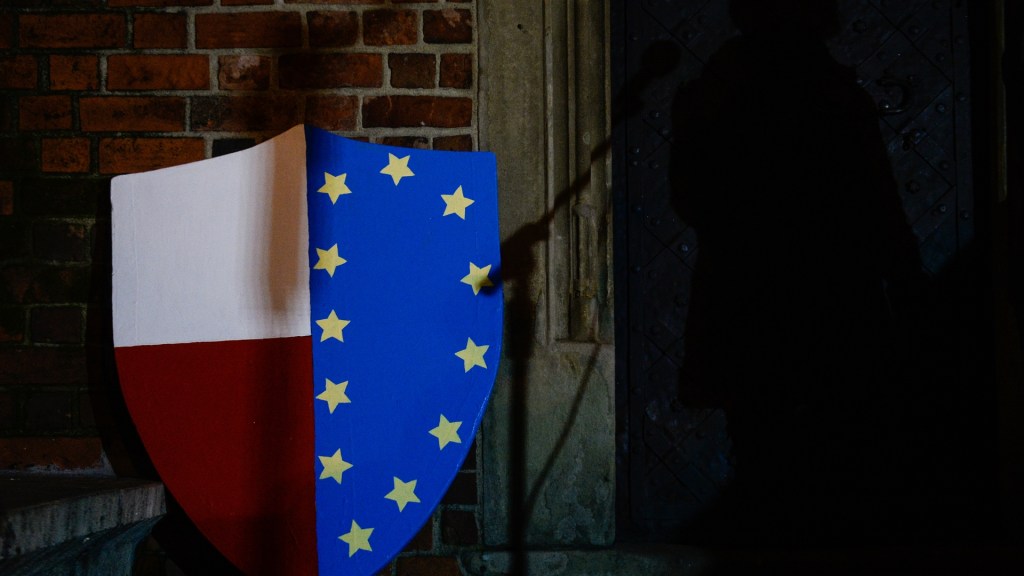When a proposed constitution for the EU was mooted in 2005, many in the UK and elsewhere in the bloc smelled a rat. This looked like a bid to shoehorn national governments into a nascent United States of Europe. The French and the Dutch agreed: and being constitutionally guaranteed a referendum on the matter, both took the obvious step and voted the scheme down. No matter. As we now know, the proposal was re-packaged in almost the same form as a consolidation measure called the Lisbon Treaty. It is now part of the EU treaty system.
The Cassandras were, of course, absolutely right. The EU was indeed playing a long federalist game. The point is nicely made by a decision of the EU’s Court of Justice this week. It concerns the seemingly dry-as-dust topic of how Poland appoints its Supreme Court judges, but it matters a lot.
Under the Polish constitution, Supreme Court judges are appointed by the president on the nomination of the KRS (the National Judicial Council), a collegiate body predominantly composed of judges. Until 2019 the judicial members of the KRS were elected by the judiciary and unsuccessful candidates had a right of appeal to an administrative court.
Following a judgment by a separate court, the Constitutional Tribunal, that this system was technically unconstitutional, it was changed by the government in 2019.
Under the new dispensation, the judicial members of the KRS are now not to be elected by the judiciary but picked by parliament. Furthermore, its decisions on Supreme Court nominations are made effectively final and unappealable. The EU criticized the reforms, saying that they created a ‘clear risk of a serious breach of the rule of law’.
Five unsuccessful candidates for nomination by the KRS took their case to the Polish Supreme Court, which in turn asked the European Court for its opinion on whether the new arrangements were compatible with EU law. Earlier this week, the European Court expressed the view that — whatever Polish legislation or even the Polish constitution might say — they were not. It effectively told the Polish government and courts to continue to apply the old system of appointment.
Andrzej Duda’s populist Law and Justice government, an administration cordially loathed by the EU and progressive European opinion as a whole, is predictably furious at the decision. The important question, however, is this: in a European Union that supposedly respects member states and their right to maintain their own constitutional arrangements, how did this argument about Polish law come to be decided by European law?
The answer, of course, was the Lisbon Treaty. Among the abstract principles introduced by this measure were rights to democracy and the rule of law within member states, together with their protection by state courts. These thus had become a matter of overriding EU law, to be interpreted if necessary by the European Court.
It followed that the Polish government could not remove the power of the Polish courts and remain consistent with EU law. If necessary the European Court will now rule on judicial appointments, since possible threats to judicial independence within a state are now a matter of European, not merely national, concern.
There are at least three reasons why those still subject to EU law should be concerned. And it should be noted that none of these concerns are about whether or not you consider the Polish reforms to be good or even legitimate. The concerns are instead about where power ultimately lies.
We can start with the most obvious. It is now clear that the changes introduced by the Lisbon Treaty were indeed a mine, set with a long-delay fuse, aimed squarely at national independence. They had the potential, and the aim, to trigger the process of establishing the EU as a federal superstate, with its Court of Justice as the arbiter of constitutional loyalty. This is exactly what has happened. The EU may trumpet its commitment to subsidiarity — the principle that, where possible, national institutions should make decisions. But in reality the EU legal order is quietly annexing powers at least analogous to those of the US Supreme Court to intervene in what used to be regarded as the internal affairs of member states, in order to promote what it describes as European values but which are in fact the political aims of a small elite in the larger western members.
The second is this is likely to continue. In the 2019 prorogation case, many people rightly felt disquiet at the UK Supreme Court’s arrogation of a power to decide questions of abstract constitutional virtue. The point being whether that court had a right to rule on parliamentary sitting times in the first place. But this is small beer when compared with the case of the EU. Consider the vague terms originating in the Lisbon Treaty are now part of immutable EU law, such as the statement that the EU is ‘founded on the values of respect for human dignity, freedom, democracy, equality, the rule of law and respect for human rights’. A license given to the European Court to determine issues of national constitutional propriety according to its understanding of vague terms like these should worry anyone. After all, not only is that court vastly more politically astute than our own Supreme Court, but in addition there is no possibility of neutralizing its judgments through the holding of a general election.
The third concern is even simpler: self-determination. Many people are deeply suspicious of the actions of the Polish government, and think — possibly with justification — that it is actually engaging in a cynical court-packing exercise to bring to heel a judiciary it sees as obstructive. But one of the values of the democratic nation state is the ability of states to work out their political problems for themselves. In deciding the way it has, undoubtedly with the approval of those in charge in Brussels, the court has demonstrated once again the unwavering belief of the EU hierarchy that this is not so. That it should not be left to the nation state to work out its own political problems on its own. On that ground alone Britain should be glad to be out of the organization. In the UK we trust our democracy with the political decisions that matter. The EU, frankly, doesn’t.
This article was originally published on The Spectator’s UK website.


















